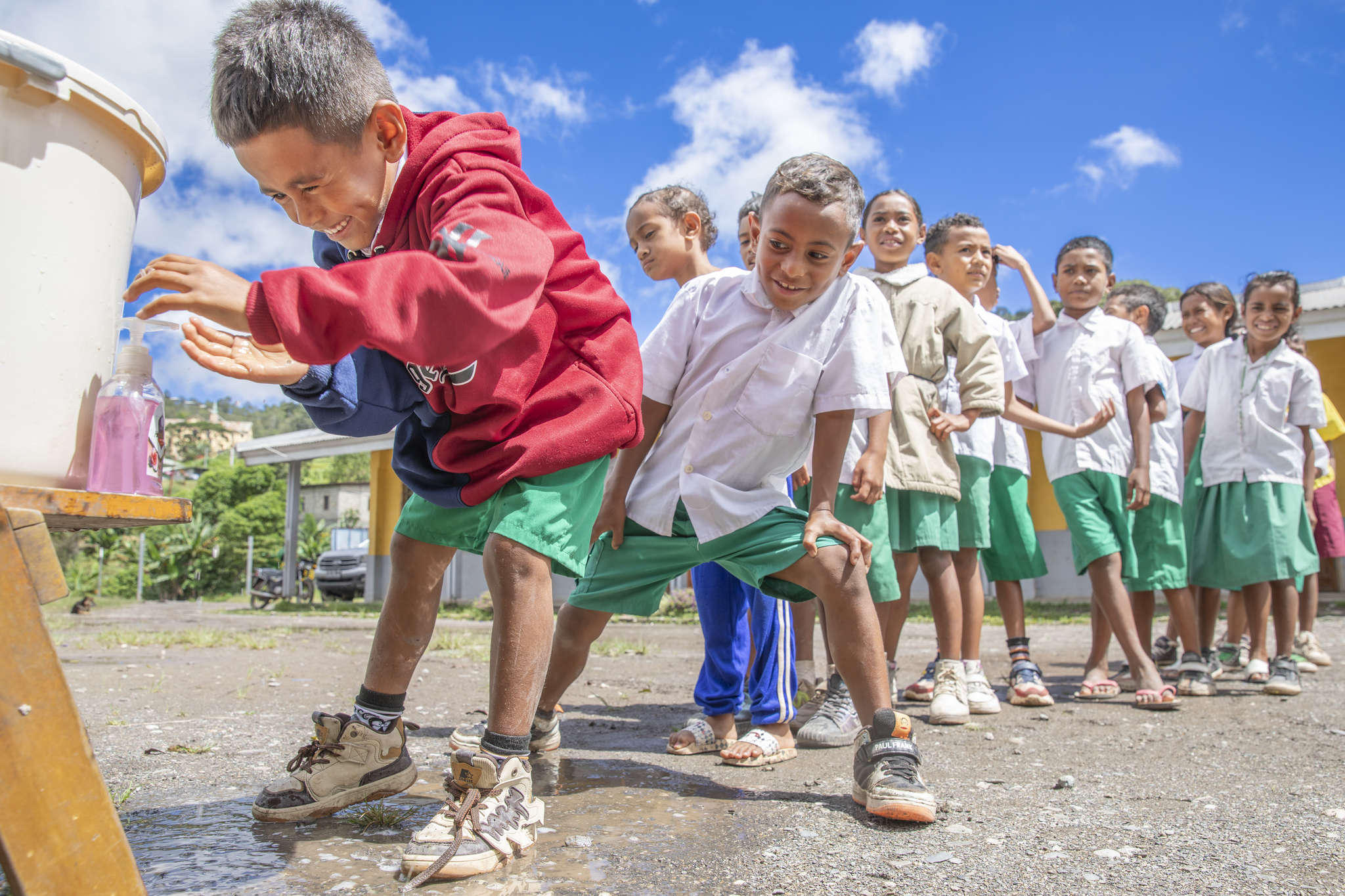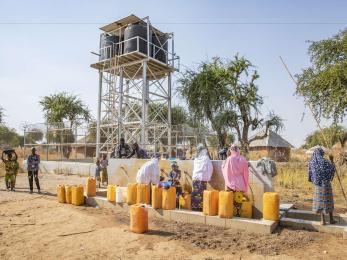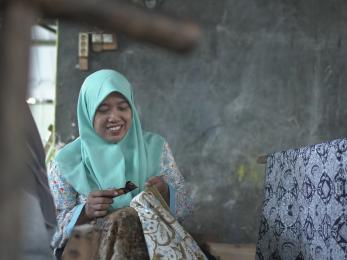Building up livelihoods and breaking down stigma

Every month, Robinah sews more than 500 eco-friendly, reusable sanitary pads. She pieces together brightly colored fabrics and stitches the layers with the soft thrum of a sewing machine. The finished products are brought to a local shop, who pay for her work, and sold at an affordable price to adolescent girls and young women in her community.
In the Karamoja region of Uganda, open discussions about menstruation and reproductive health remain taboo. During menstruation, girls and women are considered ‘unclean’ and are restricted from using water storage at home, cooking, or touching household items due to beliefs that their menstrual blood could contaminate food. Robinah is helping to push against harmful stigma by providing supplies and education about managing menstrual hygiene in her own town.
“I started educating the young girls on proper menstrual health practices, such as washing their hands and maintaining good hygiene during their periods,” said Robinah, who is a single mother in Musupo. “I realized that empowering them with knowledge and skills would help them manage their menstruation with confidence and dignity.”

By helping to transform her community’s beliefs about menstruation, Robinah has also found success for her small business where she produces reusable sanitary pads. With support from Mercy Corps’ Girls Improving Resilience through Livelihood and Health (GIRL-H) program and its collaboration with local partner Wabibi Pads, Robinah received training, materials, and equipment like a sewing machine, fabric, and notions to get started and grow her livelihood.
I knew that I had to act and make a difference.
Robinah, GIRL-H Participant
Before she participated in GIRL-H, Robinah had struggled to make ends meet to support her children by relying on income from brewing alcohol. With her new business, Robinah doubled her weekly income, earning 30,000 Ugandan shillings (about $8 USD). Her increased wages are not only helping her to meet her basic needs like purchasing food, clothing, and healthcare—it’s also going towards paying school fees for her children.
“I was motivated to participate in the [GIRL-H] program because there was a need for young girls and women to get access to reproductive health services and products. I decided to participate because I saw many young girls in my community miss school during their menstruation due to a lack of menstrual products,” said Robinah, underscoring the importance of education in her community. “This was deeply troubling me. I knew that I had to act and make a difference.”
Reproductive health and hygiene awareness is a community effort
Across Karamoja, in the five districts of Moroto, Karenga, Kaabong, Kotido, and Amudat, the GIRL-H program supports more than 5,000 young people through a ‘safe space’ approach since 2021. With a focus on improving youths’ awareness and access to reproductive health services and products, the program is also promoting a more accepting and inclusive attitude towards openly using and discussing this once taboo topic.
“By sharing their experiences and knowledge, [the parents] have become advocates for menstrual health and hygiene, inspiring others to take similar steps,” said Esther Kapel, Mercy Corps’ GIRL-H Program Manager. “As a result of this initiative, the community has seen a significant reduction in school absenteeism due to menstruation, as well as a decline in the number of girls who drop out of school due to lack of access to menstrual products. The program has also helped to break down social and cultural barriers that often prevent girls from participating in sports and other home chores during their periods.”
The program has been a community effort, training 500 parents to make bar soap and reusable sanitary pads, leading to more than 2,700 girls and young women having increased access to menstrual hygiene products. Mercy Corps’ approach with GIRL-H has been an inclusive and locally led effort, where community members identified barriers and solutions to accessing health resources and pathways to formal education for young women, which is resulting in increased wellbeing and economic opportunities. At the local primary school, where Robinah’s daughters attend, teachers have received training and mentorship from GIRL-H to provide guidance on essential topics related to menstrual hygiene, reproductive health, and sexual rights. Girls are more informed to make decisions about their bodies, health, and well-being with confidence and knowledge.
Delores Barr Weaver has an extraordinary legacy of philanthropy in Northeast Florida since moving to Jacksonville as co-owner of the Jacksonville Jaguars in 1993. Since her historic gift of $50 million in 2012 establishing the Delores Barr Weaver Legacy Fund, she has partnered with The Community Foundation for Northeast Florida on her philanthropy through numerous, multi-million dollar gifts, including the Foundation’s largest-ever gift of $61 million in 2023. She has established designated funds for more than four dozen nonprofits, including 20 that receive ongoing annual support through the Delores Barr Weaver Forever Event Fund, est. 2015. Today, her grantmaking exceeds $220 million, with support for more than 300 organizations in Northeast Florida and beyond.


